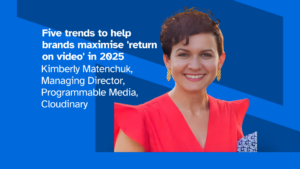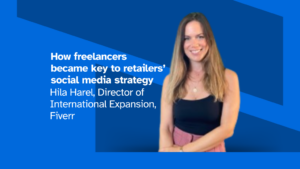By Will Cooke, Executive Director Strategy & Innovation, Golin
For those of us lucky enough to isolate, the remote working merry-go-round of instant messaging and conference calls has become standard practice. But while the plethora of platforms mean we can stay connected in ways that were unimaginable a few short years ago, are we really facing up to a new reality of the virtual offices, teams and creativity?
Optimal conditions for ‘collaboration and productivity’ have been debated for decades, and many start-ups have raised millions of dollars on the promise of “disrupting” the office.
The COVID context means many businesses are having to adapt and will be translating physical behaviours into digital processes at an unprecedented pace, but as Ethan Bernstein and Ben Waber discussed for HBR recently, we need to be careful that we do not lose sight of social structures and meaningful interactions in the race for perceived efficiencies.
The chat platforms connecting us serve a critical purpose for many businesses, but by their very nature are self- selecting stimulation, and if anything run the risk of facilitating apathetic consensus and group think. We’re effectively pulling efforts into literal and reactionary tasks, at a time when we desperately need lateral and proactive thinking to create meaningful change at a macro scale.
Arguably remote working can be more efficient, not just saving the commute, it can allow us to diligently concentrate on the task at hand. But while the removal of the incidental encounters and distractions will lead to short term efficiencies, I wonder what the long-term impact will be on creative thinking and culture?
“Stuff your conscious mind with information, then unhook your rational thought process. You can’t help this process by going for a long walk, or taking a hot bath, or drinking half a pint of claret. Suddenly, if the telephone line from your unconscious is open, a big idea whilst up within you” David Ogilvy
Boredom and distraction (or drinking) are often a catalyst for curiosity, and if anything, there are more opportunities for distraction in this new working state, but not necessarily in a creative way.
Unsurprisingly, we’re already seeing huge spikes in traffic for the main social platforms (albeit at the same time that ad spend is paralysed) as users get lost down the content rabbit hole, but to borrow a phrase, is this a deliberate practice* that will have a long term or sustained benefit?
There are already a million posts, apps and lists on how to “Win WFH life” and far too much talk of the post pandemic utopia, but I’m not sure anyone has nailed the social serendipity that we as an industry need to fuel remarkable work and culture.
So, as we adjust to new norms let’s not lose sight of the serendipity of chance encounters, protecting and positively encourage these small moments of inefficiency… At least until the start-ups pitching “like Houseparty, but for Enterprise” get funding.
Further reading if you need a moment of distraction…
*‘The Truth About Open Offices’, HBR, 2019 – https://hbr.org/2019/11/the-truth-about-open-offices
**’Deliberate Practices’ taken from ‘Peak: Secrets from the new science of expertise’, K. Anders Ericsson, 2016 – https://peakthebook.com/index.html
***’The Deloitte Global Millennial Survey 2019: Optimism, trust reach troubling low levels’ –









